Schneider RM17TA00 Relay | Multifunction control relay RM17-TA – range 183..528 V AC
4,034 EGP6,955 EGP (-42%)
Schneider RM17TA00 Relay
Schneider RM17TA00 Relay: Revolutionizing Control Systems
Introduction to Schneider RM17TA00 Relay
In the realm of electrical engineering, the Schneider RM17TA00 Relay stands as a testament to innovation and efficiency. Designed to seamlessly integrate into various control systems, this relay offers unparalleled performance and reliability. Whether in industrial automation, HVAC systems, or power distribution networks, the RM17TA00 Relay excels in optimizing processes and enhancing safety.
Understanding Relays
What is a relay?
A relay serves as an electromechanical switch, capable of controlling high-power electrical circuits with the use of a low-power signal. It functions by utilizing an electromagnet to mechanically operate its switches, allowing for the isolation and amplification of signals.
How does a relay work?
When an electrical signal is applied to the relay’s coil, it generates a magnetic field, causing the switch contacts to change position. This action facilitates the control of circuits without direct electrical connection, thus ensuring safety and efficiency.
Features of Schneider RM17TA00 Relay
The Schneider RM17TA00 Relay boasts an array of features that distinguish it in the market:
- Voltage rating: With a voltage rating of [insert voltage rating], the relay ensures compatibility with various power systems.
- Current rating: Its [insert current rating] current rating enables it to handle substantial electrical loads with ease.
- Contact configuration: The relay is available in different contact configurations, catering to diverse application requirements.
- Mounting options: Offering flexibility in installation, the RM17TA00 Relay is compatible with various mounting options, including DIN rail and panel mounting.
Applications of Schneider RM17TA00 Relay
The versatility of the Schneider RM17TA00 Relay makes it indispensable across numerous industries:
- Industrial automation: From motor control to process automation, the relay plays a pivotal role in enhancing operational efficiency and safety.
- HVAC systems: In heating, ventilation, and air conditioning systems, the relay ensures precise control over temperature and humidity levels.
- Power distribution: Within power distribution networks, the relay safeguards equipment and facilitates seamless power flow.
- Home automation: Integrating with smart home systems, the RM17TA00 Relay enables convenient and energy-efficient control of household appliances.
Advantages of Using Schneider RM17TA00 Relay
Reliability
Schneider Electric, renowned for its commitment to quality, ensures that the RM17TA00 Relay upholds the highest standards of reliability. Built to withstand rigorous conditions, this relay offers uninterrupted operation, minimizing downtime and maximizing productivity.
Versatility
Whether in harsh industrial environments or residential settings, the RM17TA00 Relay adapts effortlessly to diverse applications. Its flexible design and robust construction make it suitable for a wide range of control tasks, providing unmatched versatility to users.
Easy Installation
Featuring user-friendly design elements and comprehensive installation instructions, the Schneider RM17TA00 Relay simplifies the installation process. With plug-and-play functionality and intuitive wiring terminals, users can set up the relay with ease, saving time and effort.
Comparison with other relays
Performance
In terms of performance, the Schneider RM17TA00 Relay outshines its counterparts, delivering superior reliability and precision. Its advanced design and meticulous engineering ensure optimal performance even in the most demanding environments.
Price
While the initial investment in the RM17TA00 Relay may be slightly higher than some alternatives, its long-term benefits far outweigh the cost. With reduced maintenance requirements and enhanced durability, this relay offers exceptional value for money.
Installation Guide
Precautions
Before installing the Schneider RM17TA00 Relay, it is essential to observe certain precautions to ensure safety and optimal performance. These include:
- Disconnecting power sources to prevent electrical hazards.
- Following proper grounding procedures to avoid electrical surges.
- Adhering to specified voltage and current ratings to prevent damage to the relay and connected equipment.
Step-by-step installation process
- Identify the suitable mounting location for the relay, considering factors such as accessibility and proximity to control devices.
- Ensure that the mounting surface is clean and free from any debris or contaminants.
- Securely mount the relay using the appropriate mounting hardware, ensuring stability and proper alignment.
- Connect the control signal wires to the designated terminals on the relay, ensuring correct polarity and tight connections.
- Verify the integrity of the installation by conducting a visual inspection and performing basic functionality tests.
Maintenance Tips
To ensure optimal performance and longevity of the Schneider RM17TA00 Relay, regular maintenance is essential. Here are some maintenance tips:
Regular inspection
Periodically inspect the relay for signs of wear or damage, such as overheating, corrosion, or loose connections. Address any issues promptly to prevent further damage or malfunctions.
Cleaning procedures
Keep the relay and surrounding areas clean and free from dust, dirt, and moisture. Use compressed air or a soft brush to remove any debris that may accumulate on the relay’s surface or ventilation openings.
Troubleshooting Common Issues
Despite its robust design, the Schneider RM17TA00 Relay may encounter occasional issues. Here are some common problems and their solutions:
Relay not switching
- Check the control signal input for proper voltage and polarity.
- Inspect the relay contacts for debris or corrosion, cleaning them if necessary.
- Verify that the relay coil is receiving power and functioning correctly.
Overheating
- Ensure proper ventilation around the relay to dissipate heat effectively.
- Check for excessive current draw or overload conditions, addressing any underlying issues.
Contact corrosion
- Clean the relay contacts using a suitable contact cleaner or fine-grit sandpaper.
- Apply a thin layer of dielectric grease to the contacts to prevent future corrosion.
Additional information
| brands | Schneider Electric |
|---|---|
| Range of product | Harmony Control Relays |
| Product or component type | 3-phase control relay |
| Relay type | Multifunction control relay |
| Product specific application | For 3-phase supply |
| Relay name | RM17TA |
| Relay monitored parameters | Asymmetry Phase sequence Phase failure detection |
| Housing material | Self-extinguishing plastic |
| Mechanical durability | 30000000 cycles |
| Safety reliability data | MTTFd = 502.2 years B10d = 470000 |
| Width | 17.5 mm |
| Net weight | 0.13 kg |
| Switching capacity in VA | 1250 VA |
| Marking | CE |
| Contacts type and composition | |
| Maximum switching voltage | 250 V AC 250 V DC |
| control circuit frequency | 50…60 Hz +/- 10 % |
| Output contacts | 1 C/O |
| Nominal output current | 5:00 AM |
| Maximum measuring cycle | 150 ms measurement cycle as true rms value |
| Measurement error | < 0.05 %/°C with temperature variation < 1 % over the whole range with voltage variation |
| run-up delay at power-up | 650 ms |
| Minimum switching current | 10 mA at 5 V DC |
| Maximum switching current | 5 A AC 5 A DC |
| Supply voltage limits | 183…528 V AC |
| Power consumption in VA | 0…22 VA at 400 V AC 50 Hz |
| Measurement voltage limits | 183…528 V AC |
| Voltage range | 208…480 V phase to phase |
| Response time | < 200 ms (in the event of a fault) |
| Supply frequency | 50/60 Hz +/- 10 % |
| Operating rate | <= 360 operations/hour full load |
| Utilisation category | AC-12 conforming to IEC 60947-5-1 AC-13 conforming to IEC 60947-5-1 AC-14 conforming to IEC 60947-5-1 AC-15 conforming to IEC 60947-5-1 DC-12 conforming to IEC 60947-5-1 DC-13 conforming to IEC 60947 |
| Threshold adjustment voltage | +2…+10 % in the range 480 V AC 2…20 % of Un selected -2…-17 % in the range 220 V AC -2…-12 % in the range 208 V AC |
| Repeat accuracy | 0.5 % for input and measurement circuit 3 % for time delay |
| phase failure sensitivity | 0.7 Un |
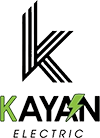







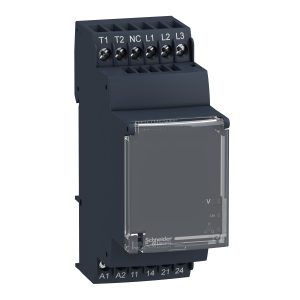
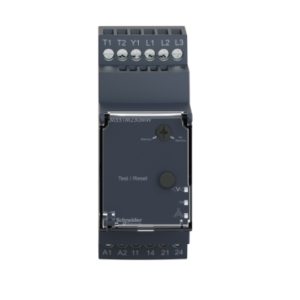
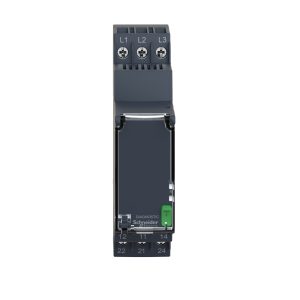

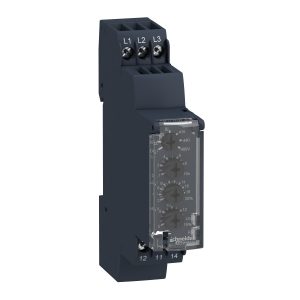
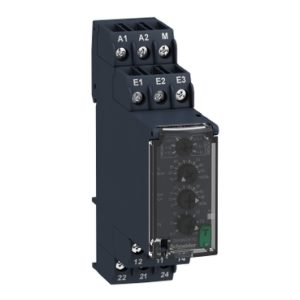
Reviews
There are no reviews yet.